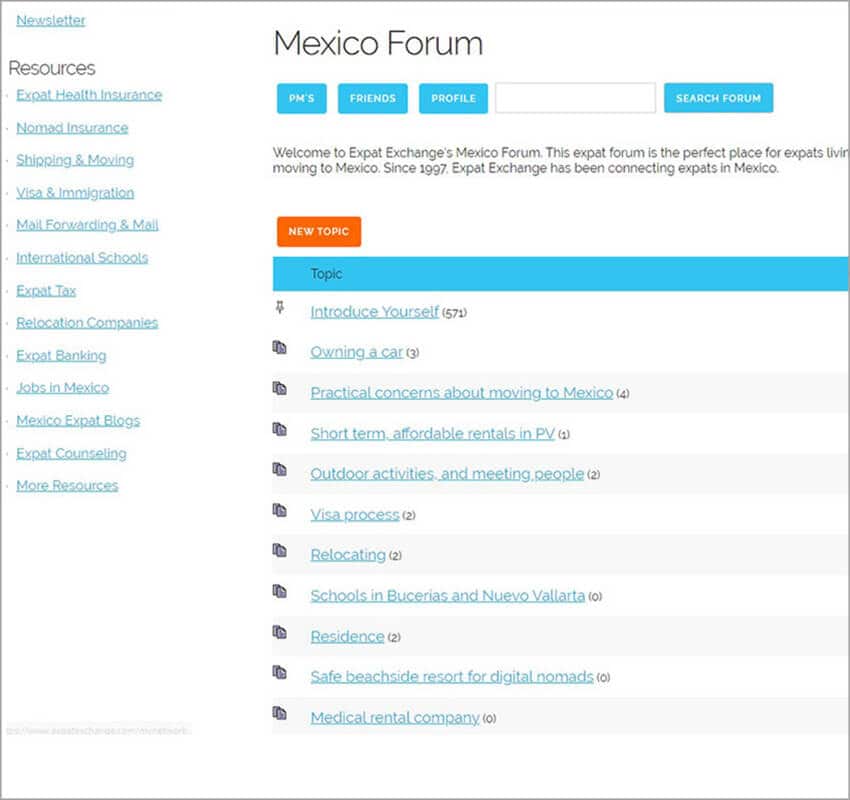It starts with an innocent question asked in an expat forum or Facebook group: is there a dry cleaner in town? Where can I find tofu? How much is a taxi to the airport?
Instead of helpful answers, what often follows is a harsh volley of sarcastic or cruel remarks, insults and abusive comments. Before you know it, the original question is drowned out by a thread of slurs, attacks and name-calling.
“I’ll be chatting on a Oaxaca group about something, and suddenly what I’ve said gets twisted out of context, or becomes an excuse for someone (maybe many people) to rant. Most often it’s folks who don’t live in Oaxaca, who may not even exist, who are roaming around the internet trying to rile people up. Actual real-life Oaxaca is a friendly city.”
That opinion comes from one of 150 people who answered a Mexico News Daily survey asking if they’d been the target of abusive comments or trolls; another 200 or so responded to posts I made on a dozen online Mexico expat pages. They shared their experiences, advice and perplexity as to why this happens so often.
To encourage more candid answers, respondents could answer anonymously.

Trolling has been a recognized (and unfortunate) part of online exchanges since the start of the internet. It’s not something that only occurs on expat pages, and we’re not talking about people complaining about life in Mexico.
Psychologists explain that trolling’s specific intent is to upset as many people as possible, challenging common-sense morality and social values. Trolls revel in triggering people and making them fight among themselves about what’s acceptable, harmful or funny, which often has nothing to do with the original post.
“People have gotten very defensive, demeaning and name-calling when I don’t agree with their opinion,” wrote one respondent. “There’s literally no question that won’t elicit an abusive response from someone. And that’s what it is: abusive. I feel like sh*t for days after getting trolled. It feels like it’s changing the nature of communication.”
It’s puzzling why our survey results showed that 89% of respondents said they had not experienced abusive comments or trolling even though almost everyone acknowledged it was a problem, claimed to see it regularly and/or gave advice about how to deal with it. Also, that 89% figure goes against international statistics and common knowledge.
However, in reading through the responses, it occurred to me that maybe it’s because most MND readers who contributed to this article are not spending much time online or are only members of one expat Facebook page that’s relevant to them.
Certainly, some said they have learned not to interact online anymore with fellow foreigners.
“The key to happiness in Mexico is avoiding other expats, especially those who pretend to know everything yet cannot speak any Spanish,” wrote a respondent. “Stay away from other gringos and you will be 200% happier.”
“Trolling” was first added to the Oxford English Dictionary in the early 1990s and its definition was updated in 2006 to: “to post a deliberately erroneous or antagonistic message on a newsgroup or forum with the intention of eliciting a hostile or corrective response.”
Psychology Today explains that it’s not just being aggressive.
“It’s also a specific attitude, in insulting and threatening someone online not because of a strong disagreement,” it wrote, “but with the precise aim of actively causing emotional harm and as much overreaction and self-righteousness in other people as possible.”
“I’ve had my meaning completely twisted,” wrote a respondent to our survey. “What often happens is, the longer commenting continues on a post, the farther off the rails it goes.”
Not surprisingly, our survey provoked a few unnecessarily negative remarks as to why trolling occurs. “Because they’re poorly moderated or are run by lefties too crazy to be allowed to remain in the States,” wrote one person.

This elicited a quick retort from another respondent. “Speaking of poorly moderated … This is the exact kind of post [that] this survey was created to understand.”
A recent Psychology Today article pointed to a lack of eye contact online that allows people to “hide behind a cloak of anonymity” in a faceless crowd. Some people then feel emboldened to break social rules and act in ways they would never act in real life.
“I’m all for free speech, but free speech doesn’t grant a person the right to be rude and uncivilized,” wrote a respondent, adding that just because someone has different views doesn’t give you the right to denigrate them. “The unfortunate thing about the internet is it affords people a level of anonymity they don’t have when face-to-face. They can be as nasty and ugly as they are in real life but aren’t allowed to be in public without showing their true selves to the world for fear of being ostracized and shunned for their behavior.”
Many had the same opinion about who these trolls are and why they do what they do.
“There are people out there who are miserable and want to make others miserable too” was a common response.
Administrators of expat forums and Facebook pages had lots to say.
“A lot of them are seniors and just f*cking cranky,” responded Beverley Wood, co-author of the bestselling book, The Move to Mexico Bible.
After living in three cities in Mexico for a total of almost a decade, she’s noticed that “the gringos are grumpiest and troll-like more where there’s a concentration of them.”
Eric Streit, who moderates three Facebook pages based in Mazatlán, has a zero-tolerance policy for “negative people who say rude things.”
“When somebody reports a post — if it’s rude, if there’s name-calling, if it’s negative — I immediately delete the comment and block the rude person forever,” wrote Streit. “No second chances.”
“It’s a surprisingly small world on these expat forums,” he added. “There are instances where moderators of various forums compare notes and discuss a particularly jerky person. “Sometimes that person will be banned simultaneously from all the forums, leaving them with no place to complain — and no way to spread their negativity.”
Several folks explained why they can’t resist responding sarcastically.

“Many of us are just fatigued by lazy newbies who keep asking questions without doing any research,” wrote one.
“There is nothing wrong with a saucy retort,” justified another anonymous respondent. “We’re all adults here. Presumably.”
Survival strategies abound. Some people on expat groups just ignore the trolls and naysayers; others have stopped posting online at all, often after particularly nasty exchanges. “As soon as I get the answer I need, I delete the question and lick my wounds,” wrote one respondent.
“Anytime a comment starts a negative conversation, I remove my original post,” wrote another.
“There are those who are in Mexico for financial reasons, and it’s not working for them. They’ll hijack a conversation quicker than anyone — they’re lonely, they’re unhappy, they’re trapped,” said one person.
“You just have to move on and not engage when comments become toxic,” advised another. “The juice sometimes isn’t worth the squeeze.”
Troll tactics: some advice
How do you handle trolls? Experts say the most important thing to remember when dealing with them is to understand what they’re trying to do: upset you. These tips may help you prevent that from happening:
- Assume good faith. Before supposing the worst, try making a kind suggestion or response. Maybe someone is just having a bad day and didn’t realize how snarky their comment sounded.
- Keep your sense of humor. You may be able to joke them out of their misbehavior.
- Ignore them. A troll’s objective is to make people angry and hijack the conversation. Don’t “feed the troll” by responding to their comments. The sooner you extinguish the trolling, the better.
- Report the troll to a forum or site administrator, moderator or owner. Treat the matter as what it is — someone testing your boundaries and waiting for you to bite.
- Compliment the troll. This simple gesture may be enough to throw them off balance and get them to stop.
- Use the “cool” tactic. When a troll posts, simply respond with the word “cool,” and continue the conversation you were having. Repeat as often as necessary.
Janet Blaser is the author of the best-selling book, Why We Left: An Anthology of American Women Expats, featured on CNBC and MarketWatch. She has lived in Mexico since 2006. You can find her on Facebook.
